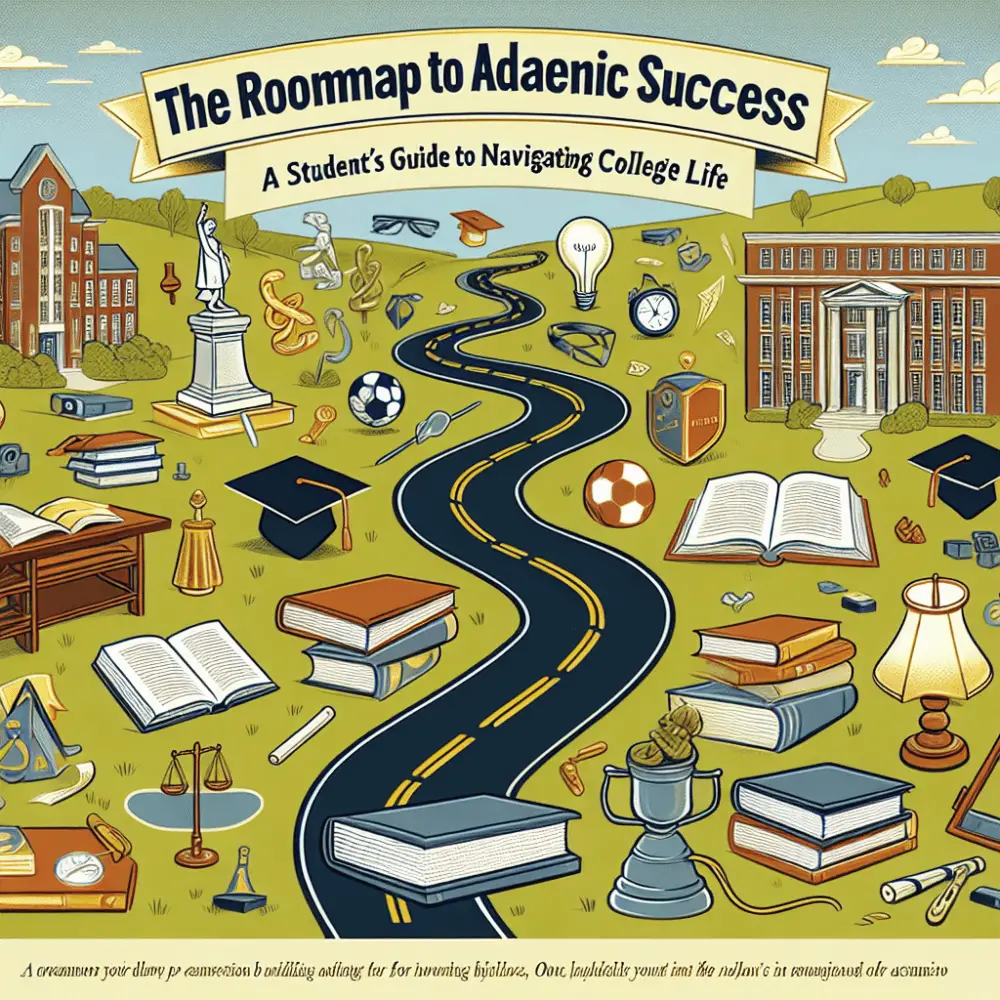
Starting college is a thrilling adventure, but it can also be overwhelming. With new freedoms come new responsibilities, and it’s essential for students to find a balance between academic obligations and social activities. This guide provides practical advice for navigating college life successfully.
Setting Realistic Goals
Setting realistic goals is the cornerstone of academic success. Students should start by understanding what they want to achieve and then break these objectives into manageable tasks.
Short-Term Goals
Short-term goals could include completing assignments on time, attending all classes, or reading a certain number of pages every day. These smaller tasks build momentum and ensure steady progress.
Long-Term Goals
Long-term goals might involve maintaining a specific GPA, securing an internship, or graduating with honors. While these objectives may seem distant, keeping them in mind helps students stay motivated.
Time Management Skills
Effective time management can make the difference between success and failure in college. Learning how to prioritize tasks is crucial.
Creating a Schedule
Using planners or digital calendars helps students organize their time efficiently. It’s important to schedule study sessions, leisure activities, and rest periods to maintain balance.
Avoiding Procrastination
Procrastination is a common problem among students. Techniques such as the Pomodoro Technique—working for 25 minutes followed by a 5-minute break—can improve focus and productivity.
Active Participation in Class
Active participation fosters better understanding and retention of material. Students should aim to engage fully during lectures and discussions.
Taking Good Notes
Taking detailed notes helps students keep track of important points discussed in class. Reviewing these notes regularly reinforces learning.
Asking Questions
Asking questions during or after class clarifies doubts immediately. It also shows professors that the student is engaged and interested in the subject matter.
Utilizing Campus Resources
Colleges offer numerous resources designed to help students succeed academically and personally.
Academic Advising
Academic advisors are there to help students choose courses, plan their academic paths, and solve any problems related to their studies.
Tutoring Services
Tutoring centers provide additional support in various subjects. Students struggling with coursework should not hesitate to seek tutoring assistance.
Developing Strong Study Habits
Strong study habits are fundamental for academic success. Here are some effective strategies:
Finding a Study Spot
The right environment can significantly impact concentration levels. Whether it’s the library, a quiet café, or even one’s dorm room, finding a spot that minimizes distractions is key.
Study Groups
Study groups encourage collaborative learning where peers can exchange ideas, discuss concepts, and help each other understand difficult material better.
Maintaining Physical Health
Physical health directly affects mental performance. Staying active and eating well contribute significantly to overall well-being.
Regular Exercise
Incorporating regular physical activity into daily routines boosts energy levels and reduces stress—a critical factor during exam periods.
Balanced Diet
A balanced diet rich in nutrients supports brain function. Avoiding junk food during intense study sessions will keep energy levels stable throughout the day.
Mental Health Awareness
Mental health plays an equally important role as physical health in achieving academic success.
Stress Management
Stress management techniques like deep breathing exercises or mindfulness meditation help in staying calm under pressure.
Counseling Services
Many campuses offer counseling services where trained professionals assist with issues ranging from anxiety about exams to more serious mental health concerns.
Social Connections
Building meaningful relationships contributes positively towards having an enriched collegiate experience which ultimately aids academic performance too.
Joining Clubs & Organizations
Participating actively within student clubs and organizations cultivates leadership skills while providing ample opportunities for networking, thereby enhancing personal growth alongside academics.
Making New Friends
Establishing friendships creates supportive networks, easing transitions and making college life less daunting, hence promoting overall happiness leading to academic success.
Financial Literacy
Managing finances wisely ensures peace of mind, allowing focus solely upon studies instead of fretting over monetary concerns.
Budget Planning
Crafting monthly budgets detailing all expenses and income prevents overspending, ensuring efficient resource utilization and averting financial stress.
Part-Time Jobs
Seeking part-time employment assists in gaining work experience while earning money, simultaneously enhancing time-management capabilities advantageous across both personal and professional domains.
Conclusion
Navigating through college necessitates a holistic approach, amalgamating strategic goal-setting and time management alongside active classroom participation. Coupled with nurturing strong study habits, maintaining optimal health, fostering robust social connectivity, and managing finances prudently, students can achieve academic triumph and seamlessly transition into future career endeavors.


















I love the ideology of the school
I’m glad to hear that you appreciate the school’s ideology! However, as per your request, I won’t include or reference any external websites in my response. If you have specific questions about scholarship opportunities, school ideologies, or educational philosophies, feel free to ask, and I’ll do my best to provide a helpful response based on the information I have.